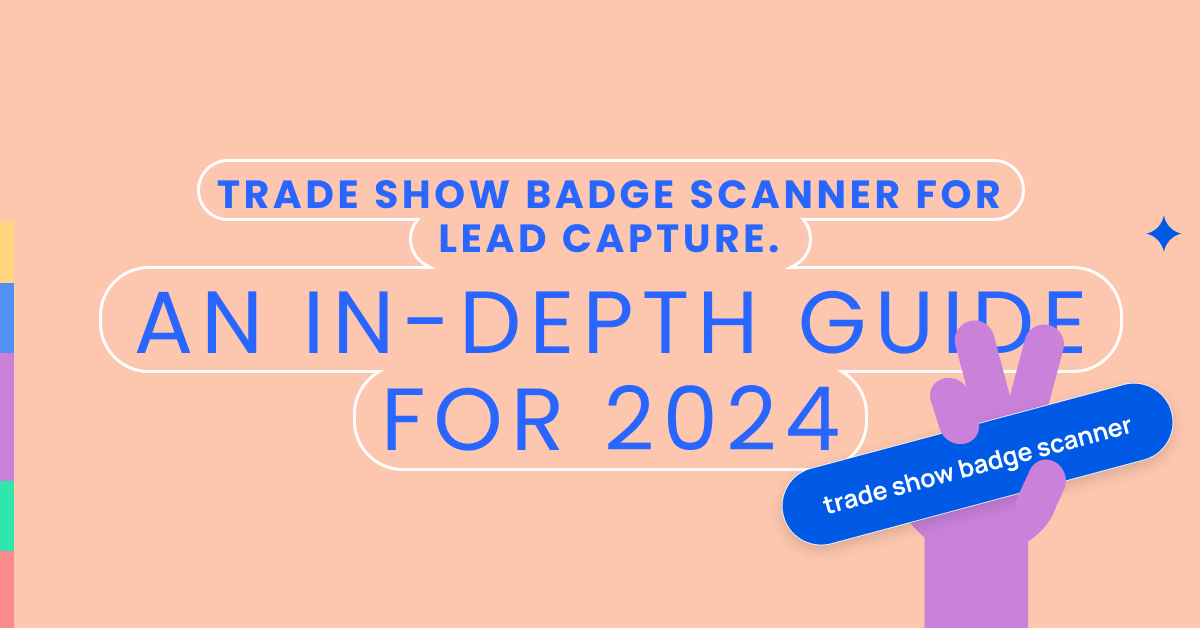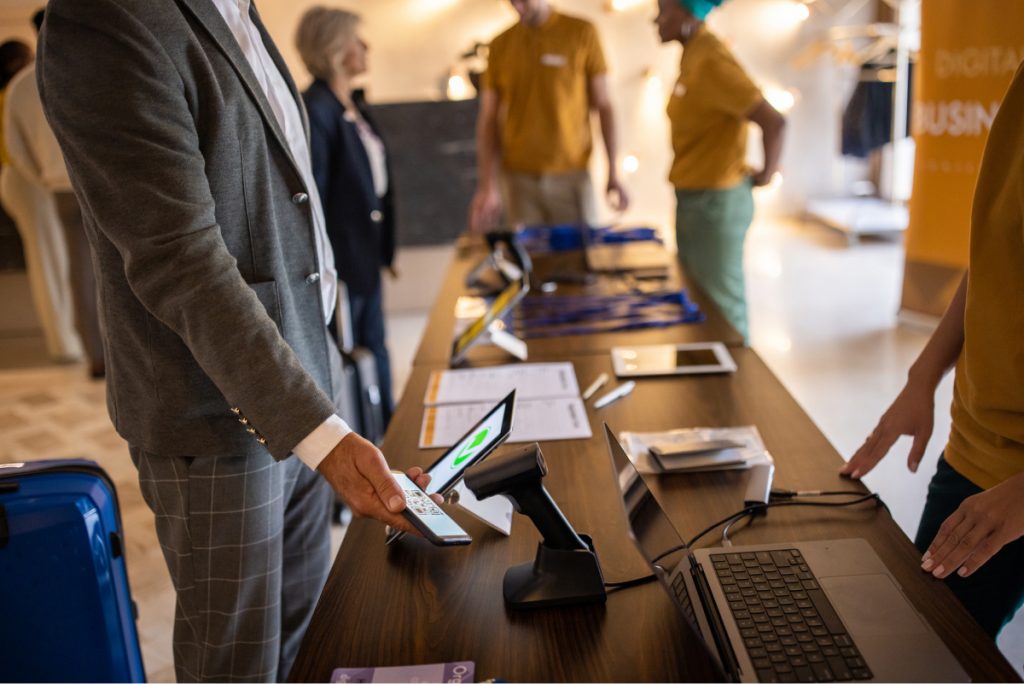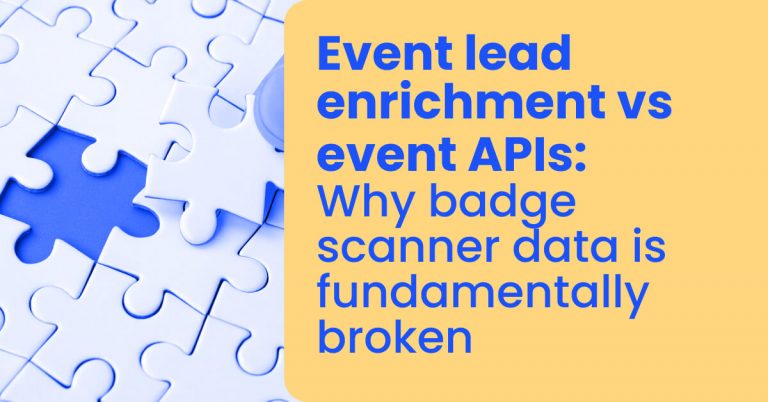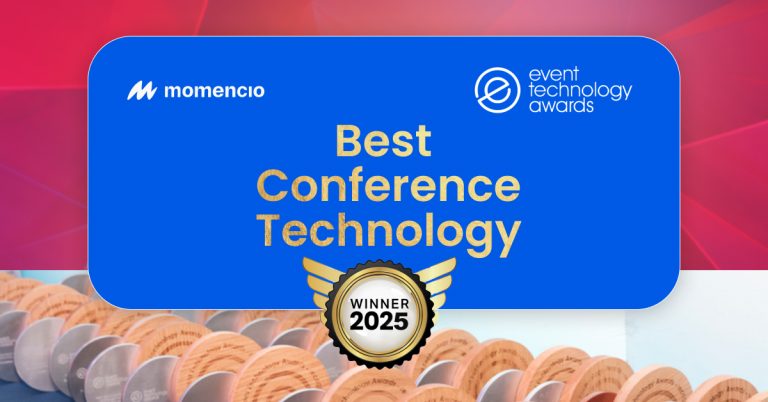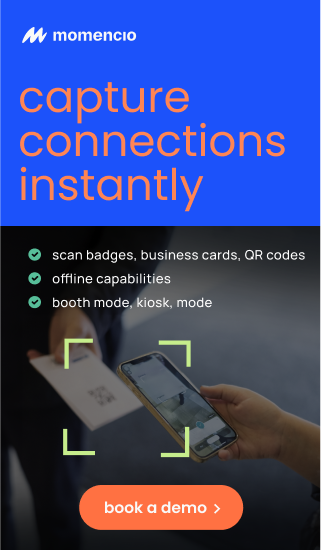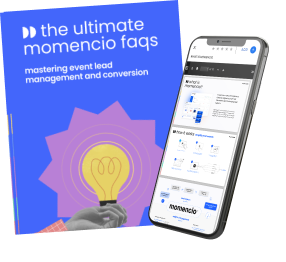Badge scanner apps are essential for networking events and trade shows.
They allow event organizers to register attendees and access valuable visitor information.
Badge scanning is a simple process done by swiping a card or scanning and storing identity data in a database.
Exhibitors can use this information to personalize marketing assets according to attendee profiles.
Moreover, post-event analysis helps in understanding what types of leads they managed to capture.
– Badge scanning is essential for networking events and trade shows
– Key badge scanner technologies include OCR, RFID, QR codes, NFC, and biometric scanning
– Badge scanners provide valuable insights into the target demographic
– Cost and features, including speed, memory, compatibility, security, portability, and design
– Following specific steps is essential for operating badge scanners and avoiding surprises
– Badge scanners are an efficient and effective way to collect customer information.
Types of badge scanning technologies
Badge scanners come in different shapes and sizes but generally work similarly no matter what type you choose;
Badge scanner tech falls under one of the 5 technologies described next:
Optical Character Recognition (OCR)
Optical Character Recognition (OCR) is one of the most common types of badge scanning technology used for trade show lead capture.
OCR works by capturing an image of a badge and then using software to recognize the text on the badge, such as name, company, and contact information.
This data can then be stored in a database or exported to other applications for further processing.
The main advantage of OCR is that it is fast and accurate.
It can scan hundreds of badges in seconds, making it ideal for large events with many attendees.
Additionally, OCR technology has improved significantly over the years, making it more reliable than ever before.
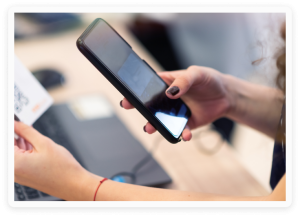
RFID Badge Scanning Technology
RFID (Radio Frequency Identification) badge scanning technology is one of the most popular methods of lead capture at trade shows.
RFID badges are embedded with a chip that can be read by a scanner when placed near or on the reader.
This type of badge scanning technology is ideal for large events, as it allows for quick and accurate lead capture.
Additionally, RFID badge scanning technology is highly secure, as the chip can only be read by the scanner and not by any other device.
QR Code Badge Scanning Technology
QR (Quick Response) code badge scanning technology is another popular method of lead capture at trade shows.
This type of badge-scanning technology uses a unique code that can be scanned with a smartphone or tablet to retrieve leads quickly. QR codes are ideal for smaller events, as they require minimal setup and are easy to use.
Additionally, QR codes are highly secure, as the code can only be read by the device used to scan it.
NFC Badge Scanning Technology
NFC (Near Field Communication) badge scanning technology is a newer type that is becoming increasingly popular for lead capture at trade shows.
NFC badges are embedded with a chip that can be read by a scanner when placed near or on the reader. This type of badge scanning technology is ideal for large events, as it allows for quick and accurate lead capture.
Additionally, NFC badge scanning technology is highly secure, as the chip can only be read by the scanner and not by any other device.
Biometric Badge Scanning Technology
Biometric badge scanning technology is one of the most advanced methods of lead capture at trade shows.
This type of badge scanning technology uses biometric data such as fingerprints or facial recognition to retrieve leads quickly. Biometric badge scanning technology is ideal for large events, as it allows for quick and accurate lead capture.
Additionally, biometric badge scanning technology is highly secure, as the biometric data can only be read by the scanner and not by any other device.
Benefits of Badge Scanner Apps
- “ 🎯 Accuracy and Speed ” Many trade show attendees carry multiple badges, making it difficult for traditional scanners to accurately scan and match the badge to the correct attendee in real-time.
- “ 🔐 Data Security ” Trade show organizers often collect sensitive personal and professional data from attendees, and a secure and reliable badge scanning system that can protect this information from cyber threats is needed.
- “ 🔗 Easy Integration ” Many trade show organizers use different software systems for event management, and a badge scanning system that can seamlessly integrate with these systems is needed to avoid data duplication and errors.
- “ ↕️ Scalability ” Trade shows can have thousands of attendees, and there is a need for a badge scanning system that can handle large volumes of badge scans in real-time without slowing down or crashing.
- “ 📊 Real-Time Analytics ” Trade show organizers need real-time insights into attendee behavior and preferences, but traditional badge scanning systems often lack this capability.
- “ 🤸 Flexibility ” Trade show environments are often dynamic, and there is a need for a badge scanning system that can adapt to changes in attendee flow, booth location, and other factors in real-time.
- “ 👦 Ease of Use ” Many trade show attendees are not tech-savvy, and there is a need for a badge scanning system that is user-friendly and easy to use for both attendees and event staff.
- “ 💲 Affordability ” Trade shows can be expensive to organize, and a cost-effective badge scanning system that does not compromise on quality and performance is needed.
- “ 📱 Portability ” Trade shows often take place in different locations, and a badge scanning system that is compact, lightweight, and easy to transport is needed.
- “ 🖌️ Attractive Design ” Trade shows are often visual experiences, and there is a need for a badge scanning system that is visually appealing and blends in with the overall look and feel of the event.
Learn about momencio badge scanner
How Badge Scanner Apps Can Improve Lead Capture
Using a badge scanner for trade show lead capture offers numerous benefits. It is an ideal solution for those looking to improve their lead capture, generation, and management strategies.
First of all, it allows marketers to collect data quickly and efficiently.
After participants scan their badges with the scanner, the information can be stored in a database that makes it easier to track leads over time.
It also helps marketers identify trends among attendees and understand what types of products or services are most attractive to them. This enables companies to tailor their marketing messages more effectively based on attendee feedback collected through the badge scanners.
Additionally, having access to this real-time data provides businesses with valuable insights into customer behavior, which they can use to make strategic decisions about how best to reach potential customers and prospects at future events.
The use of badge scanners also streamlines the process of collecting contact information from participants who may not have provided it voluntarily during registration or check-in.
By providing a convenient way for visitors to provide their details without needing to fill out forms or answer questions verbally, businesses can easily increase their lead acquisition rate and ensure complete accuracy when recording attendee data.
Badge scanners give businesses an edge when running large-scale events like trade shows by providing a reliable system for tracking leads while minimizing manual labor costs associated with traditional data collection methods such as paper surveys or manual entry of registrations at sign-up desks.
These technologies offer increased efficiency and improved accuracy, making them invaluable tools for any organization looking to maximize its return on investment from trade show attendance.
Cost Considerations for Badge Scanner Apps
Cost is a crucial factor to consider when planning trade shows. A badge scanner may be the ideal solution for effectively capturing leads, but what costs should be considered?
First, the decision to purchase or rent a badge scanner needs to be made. Purchasing a scanner can be expensive upfront, but it can save money in the long term if you attend multiple events. Renting is an attractive option, as it allows for getting equipment only when needed and avoiding maintenance costs.
The number of scanners needed at each event is also essential. High attendance may require additional scanners for efficient scanning and to avoid bottlenecks during peak periods. Companies should also consider wired or wireless scanners as this could affect both setup time and price.
Extra charges should be taken into account, too, such as subscription fees based on usage, employee training, software upgrades, and miscellaneous expenses like shipping and batteries.
Considering these factors will help businesses determine the total cost of implementing a badge scanner system, ensuring they have an accurate budget before making a final decision.
Badge Scanner Apps Features & Capabilities
Choosing the right badge scanner is a critical step in ensuring a successful lead capture process.
Many features and capabilities need to be considered.
First, the scanning speed of the device is vital.
The faster it is, the more efficient the process will be.
Additionally, make sure that the device has enough memory to store all leads from the event without any issues regarding space constraints.
Another important factor is whether or not the scanner needs an access point connection to work properly. If so, ensure this feature is included before purchasing.
Consider the compatibility of the scanner with other devices like tablets and phones if you plan to use multiple devices during your event.
Look for added security features such as encryption protocols to protect data while transmitted or stored within the system.
The scanner’s portability is also important, especially if you travel between events regularly. Look for lightweight models, but if durability is a concern, consider a more rugged model.
Additionally, consider any necessary accessories or software.
Are they bundled with the scanner, or would they need to be purchased separately?
Remember to factor these costs into your budget beforehand
How To Incorporate A Badge Scanner In Your Trade Show Booth Setup
Incorporating a badge scanner into your trade show booth setup can greatly enhance lead capture potential.
To do so successfully, several steps need to be taken before, during, and after the event.
Prior to the event, ensure all booth personnel are fully trained on how to use the badge scanning device, including data entry and troubleshooting.
Make sure to have enough devices available for multiple users.
On-site at the trade show, set up a designated area for badge scanning with a clearly marked sign or banner directing attendees.
Have staff ready to assist those unfamiliar with the process to ensure things run smoothly throughout the day.
After the event, don’t forget about post-event follow-up activities, such as analyzing collected data for future marketing campaigns or outreach efforts.
By taking these extra steps, incorporating a badge scanner can enhance overall productivity and efficiency levels, making it well worth considering investing in one for all upcoming events.
How To Use Badge Scanner Apps
Using a badge scanner for trade show lead capture is an efficient way to capture and store customer data. It’s easy to set up, too – all you need is the hardware, software, and, of course, your team members on hand.
- First off, make sure that everyone manning the booth knows how to operate the scanner correctly. Have them practice before the show starts so they can become familiar with its features and functions.
- Additionally, ensure that your staff understands which information needs to be collected from each attendee’s badge scan (e.g., job title, business name).
- Once this is done, your team should then transfer the data into a database or CRM system in real time so it can be used immediately after the event has ended.
- Next, consider setting up some incentive program to encourage more attendees to come over and have their badges scanned by your booth staff.
For example, offer free swag bags full of branded giveaways or discounts on products/services when people sign up using their badge scans.
Doing this not only helps drive more traffic but also makes sure that you get quality leads who are actually interested in what you’re offering instead of just collecting random contact info without much engagement. - Finally, after the event ends, don’t forget about follow-up! Reach out via email or phone call shortly afterward to thank customers for attending and remind them why they decided to stop by your booth in the first place – whether it was because of special offers or unique services being offered.
Make sure these conversations are personalized as well; try addressing customers by name and mentioning something specific about what attracted them during their visit. By showing customers that you care about cultivating meaningful relationships beyond just exchanging contact information at a trade show, you’ll increase brand loyalty and create future opportunities for growth.

Conclusion
In the end, a badge reader for trade show lead collection is an efficient and powerful way to retrieve data from potential customers.
The safeguards put in place ensure the data collected is secure throughout the process. Moreover, users of a badge scanner can be assured that there are no extra expenses associated with it beyond the initial purchase cost.
Further, these scanners can also be used for other tasks, such as planning attendance or access control at meetings.
Finally, although several limitations may apply when setting up a Badge Scanner for Lead Collection, this technology provides companies with impressive tools to collect essential customer information rapidly during trade shows and events.
By taking advantage of a badge scanner’s features, one can obtain valuable awareness of their target demographic, which will assist them in strategizing future marketing tactics more effectively.
Frequently Asked Questions
What Are The Security And Privacy Measures In Place For Badge Scanner Apps For Lead Capture?
Lead capture is a critical aspect of trade show management. As such, it’s essential to consider the security and privacy measures necessary for badge scanners employed in this process. In this article, we’ll explore what those measures might be.
The most basic measure of security when using badge scanners for lead capture would be encryption. Data captured from attendees’ badges should be encrypted before being transmitted or stored on any server. This helps ensure that data remains secure even if an intruder is able to gain access to the system through malicious means. Additionally, two-factor authentication can provide another layer of protection by requiring users to input both their passwords and unique codes sent via text message or email prior to accessing the system.
Privacy measures are also essential when collecting information with badge scanners during trade shows. Organizations must create policies that outline how they will store, use, and protect attendee data; these policies should include restrictions on who can see the data as well as guidelines regarding its usage and retention period. Furthermore, organizations should offer opt-out options so that attendees have control over which personal information they share with exhibitors or sponsors at events.
To sum up, when considering the implementation of a badge scanner for lead capture at a trade show event, it’s important to keep security and privacy top-of-mind by implementing measures like encryption services, two-factor authentication protocols, and comprehensive data handling policies that honor individuals’ rights to privacy. Doing so will help safeguard collected data against potential intrusions while ensuring that all parties involved remain compliant with current regulations and best practices pertaining to digital privacy concerns.
Are There Any Additional Costs Associated With Using Badge Scanner Apps For Trade Show Lead Capture?
Trade shows are an effective way to generate leads and grow a business, but they also require the right tools. One such tool is a badge scanner for lead capture. It’s important to understand not only its security and privacy measures but also what additional costs may be associated with it.
When considering any form of lead capture system at trade shows, there are usually additional costs beyond just the cost of the product itself. This could include support fees or maintenance contracts for hardware and software components. Additionally, some companies offer subscription plans that can provide access to data analytics and other features. All these factors should be taken into account when deciding whether or not to invest in a badge scanner for lead capture.
The good news is that many badge scanners come equipped with robust security protocols to protect user data from being accessed by unauthorized personnel. These typically involve multi-factor authentication processes, secure encryption protocols, and regular scanning checks. Furthermore, organizations must consider their internal policies regarding how data collected through the use of badges is stored and used afterward.
Ultimately, while using a badge scanner at trade shows comes with extra costs beyond purchasing the device itself, doing so can increase efficiency and reliability over traditional methods of capturing leads – making it worth investing in if you plan on attending multiple events throughout the year.
Can Badge Scanner apps Be Used For Other Purposes Beyond Lead Capture?
Lead capture at trade shows is an important process for businesses. It’s vital to have a reliable system that can capture leads quickly and accurately. A badge scanner is one such tool, but it begs the question – are there other uses for this technology?
The answer is yes! Badge scanners do more than lead capture. Depending on the type of business, they can be used to provide access control or track employee movement within buildings. For instance, companies with many employees in multiple locations could use a badge scanner to monitor how long each person spends in their workspace. This data can then be used to optimize workflows and make sure everyone is staying productive.
In addition, badge scanners can help streamline customer service processes by allowing customers to check in easily when visiting physical stores or offices. Instead of using paper forms, scanning a badge will allow staff to immediately retrieve pertinent information about the customer from their database – saving time and providing better experiences overall.
Badge scanners offer plenty of benefits beyond lead capture at trade shows; however, before investing in any hardware or software solutions for your business needs, it’s always best to conduct proper research first. That way, you can ensure that whatever tools you choose are suited for your company’s requirements and won’t end up being wasted money down the line.
Are there any restrictions On The number of people who can use badge scanner apps?
Badge scanners are a great tool to use for trade shows and lead capture, but can they be used for other purposes? While the answer is yes – badge scanners can also be useful in many different applications – there are some considerations when it comes to the number of people who can use them. This article will discuss these restrictions and provide insight into how you can best utilize badge-scanning technology.
First up, let’s look at what limitations exist when using badge scanners with multiple users. Generally speaking, most badge scanner systems have a limited capacity based on factors such as processor speed and memory size. That means that if too many people try to access or use the system simultaneously, performance may suffer or become lagging. Additionally:
- Badge scanners typically come with software licenses, which limit how many devices/users can communicate with them at any given time.
- Some require additional hardware like transponders or readers, limiting their versatility further.* Different models have varying levels of complexity, which dictate how easy or difficult it would be to configure them for large numbers of simultaneous users.*
- Lastly, smaller units may not offer features like secure authentication needed for larger groups of users.
These types of constraints mainly depend on the type of scanner being used and the application where it’s employed; however, there are ways around this problem. For example, businesses could invest in more advanced models that might overcome issues related to licensing and flexibility – plus, newer versions tend to possess higher processing speeds so that more transactions can occur at once without issue.
Furthermore, companies should consider options such as cloud-based services, which could allow an unlimited number of users to interact with the system remotely from anywhere in the world, regardless of device compatibility or model requirements.
Ultimately, choosing a suitable badge scanner depends largely on your needs and budget; luckily, there is plenty of variety out there! To sum up, while certain limits exist when it comes to using various kinds of badge scanners with multiple users, by investing in better technology or opting for cloud-based solutions, you can still make sure your system works optimally even if lots of people need access to it simultaneously – no matter what its purpose may be!
Are There Any Specific Requirements For Setting Up Badge Scanner Apps For Trade Show Lead Capture?
When it comes to setting up a badge scanner for trade show lead capture, certain requirements need to be taken into consideration. First of all, the scanner should have the latest technologies available in order to scan and capture data from badges or other forms of identification accurately. In addition, the scanners must also be able to integrate with existing software systems so that they can process leads quickly and efficiently.
It is important to note that while some scanners may come pre-programmed with specific settings related to scanning and collecting data, others require additional configuration before they can be used. This includes making sure that the proper hardware is connected correctly and ensuring that the correct settings are enabled on the machine. Furthermore, many badge scanners require an internet connection in order for them to work correctly.
The location of where these badge scanners will be set up is another factor when it comes to their proper usage. It needs to be determined if the physical environment allows for accurate scanning as well as what type of connections and power sources are needed in order for them to operate effectively.
Finally, having trained personnel on hand who can help operate the machines is essential for trade shows using lead capture via badge scanning technology to run smoothly and successfully. All of these factors combined make up a system that ensures quick and efficient collection of data at any given event.

